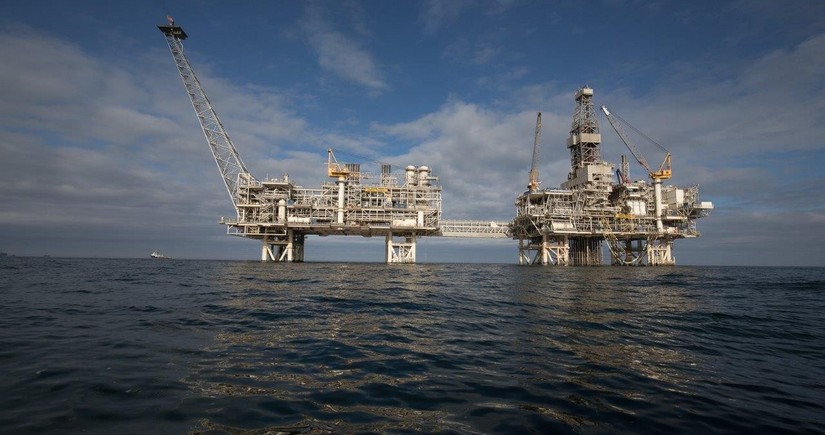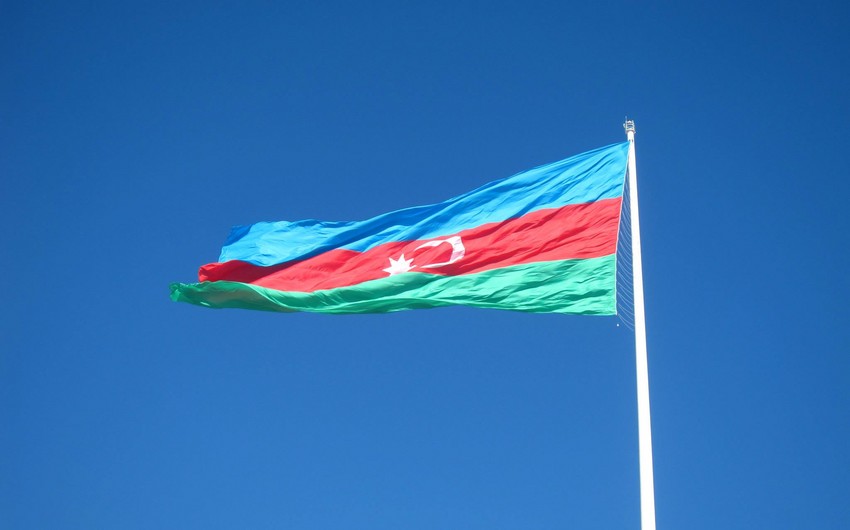Contract of Century turns 30: Legacy of achievement and future promise
- 20 September, 2024
- 06:00

September holds a special place in Azerbaijan's history, as it is associated with several landmark events. In 2020, on September 27, Azerbaijani armed forces launched a 44-day counter-terrorism operation that liberated the country from 30 years of Armenian occupation and regained control over Karabakh and East Zangazur.
On September 19, 2023, Azerbaijan fully restored its sovereignty by conducting a one-day local operation, eliminating the separatist regime on its territory.
Despite the bitterness of defeats and losses in the First Karabakh War, over three decades, the country managed to strengthen its economy and defense capabilities to confirm its power on the battlefield. However, this success would hardly have been possible without the signing of the Contract of the Century on September 20, 1994.
This groundbreaking agreement was the first major oil deal between independent Azerbaijan and 11 foreign companies to develop the giant Azeri-Chirag-Gunashli (ACG) block of fields in the Caspian Sea. The contract became a key factor in ensuring political stability, restoring the national economy, creating a favorable investment climate, developing industry, and organizing export routes. As a result, it established Azerbaijan's reputation as a reliable supplier of energy resources to world markets.
Over the past 30 years, the ACG project has achieved remarkable milestones. Seven production platforms have been commissioned, producing over 595.8 million tons of oil and 225 billion cubic meters of associated gas. More than 4.3 billion barrels of oil have been exported via the Baku-Tbilisi-Ceyhan pipeline, with 5,707 tankers loaded with ACG oil at the Ceyhan terminal since 2006.
The total capital expenditure on the project amounted to $45 billion, with BP and its partners investing around $111 million in the country's social projects.

As of the second quarter of 2024, the ACG fields had 144 producing wells, 45 water injection wells, and 8 gas injection wells. The daily oil production at ACG currently stands at approximately 336,000 barrels.
ACG remains the largest source of revenue for the State Oil Fund of Azerbaijan (SOFAZ). From 2001 to September 1, 2024, the total income from the sale of profitable oil at ACG amounted to $174 billion, including $4.2716 billion for January-August 2024 alone.
BP has paid a total of $3.3 billion in bonuses to SOFAZ under the project since 2001. These funds are actively used to finance various state programs and ensure economic stability and investments in the country's future development.
Unique solutions
As Azerbaijan's iconic Azeri-Chirag-Gunashli (ACG) oil field reaches its 30-year milestone, the inevitable decline in production poses significant economic challenges for both the nation and its investors. However, the introduction of cutting-edge technologies and innovative solutions is proving to be a game-changer in extending the field's lifespan and maximizing oil recovery.
On April 16, a groundbreaking new platform named Azeri Central East (ACE) was inaugurated, marking the next phase in the development of the ACG block. This $6 billion project, approved in April 2019, involves the construction of a state-of-the-art production and drilling platform, situated 137 meters deep between the Central Azeri and East Azeri platforms, along with the drilling of 48 wells.

ACE is not just another platform; it is a technological marvel that sets new standards in the oil and gas industry. Fully operated from the shore, ACE significantly enhances safety and efficiency by automating many labor-intensive processes, making it one of the most advanced platforms worldwide.
The platform's design incorporates innovative engineering solutions and cutting-edge digital technologies. Its fully automated drilling rig reduces operational emissions and improves efficiency. Moreover, ACE's infrastructure allows for water and gas injection to maintain reservoir pressure and enhance oil recovery, supporting other platforms in the field.
BP, the project operator, and its ACG partners anticipate a peak daily production of 100,000 barrels of oil and 350,000 cubic feet of gas from ACE through additional drilling and offshore facilities.
ACE is not the only technological breakthrough BP has introduced in the Caspian. Other innovations include Extended Reach Drilling (ERD), enabling target wells to be placed far from the platform, and high-angle drilling (nearly horizontal), allowing for longer wells with thinner reservoirs, thereby increasing production rates.

4D-format
On January 20, 2024, BP launched a groundbreaking four-dimensional (4D) seismic survey program in Azerbaijan. This ambitious project, BP's largest in the world in terms of area, cost, and duration, aims to provide detailed insights into the productive Balakhany and Fasila layers within the ACG block.
The survey will cover an impressive 740 square kilometers under the seismic source and 507 square kilometers under the receivers. With a budget of approximately $370 million, the program is set to span five years (2024-2028) and will involve five monitoring sessions using underwater nodes and supply vessels "Murovdag" and "Guba". Caspian Geo LLC has been entrusted with the execution of this task.
The 4D seismic survey holds immense significance not only for BP and its project partners but also for Azerbaijan as a whole. By providing detailed information about the reservoirs, the program will enable the development of solutions to minimize future unforeseen well situations and maximize oil recovery for decades to come.
First "Deep-gas"
Azerbaijan is on the cusp of a significant milestone in its energy history with the upcoming development of deep-gas reserves within the Azeri-Chirag-Gunashli (ACG) block. This project, known as "Deep-Gas," is set to substantially increase the country's natural gas production.
In 2023, the A22z appraisal well was drilled to refine the estimates of the deep-gas reserves at ACG. Currently, the data obtained from this well is being interpreted, and negotiations with SOCAR and Azerbaijani government agencies regarding the technical and commercial aspects of the project are ongoing.

The deep-gas reserves at ACG are estimated to be 300 billion cubic meters. The development of these reserves, alongside other major fields such as Shah Deniz, Absheron, and Umid Babek, will significantly boost the country's overall gas production, strengthening Azerbaijan's energy independence and its position in the global energy market.
The Contract of the Century, signed in 1994, remains a crucial foundation for Azerbaijan's economic growth. In 2017, the contract was extended until 2050, allowing the country to continue developing the ACG fields and effectively utilize its hydrocarbon resources. As before, Azerbaijan plans to use its oil reserves not only to strengthen its economy but also to prepare for future energy challenges associated with the transition to alternative sources.
For instance, Azerbaijan is actively developing green energy, implementing wind and solar power projects in partnership with companies such as BP, ACWA Power, and Masdar. This is part of the country's long-term strategy for sustainable economic development.
